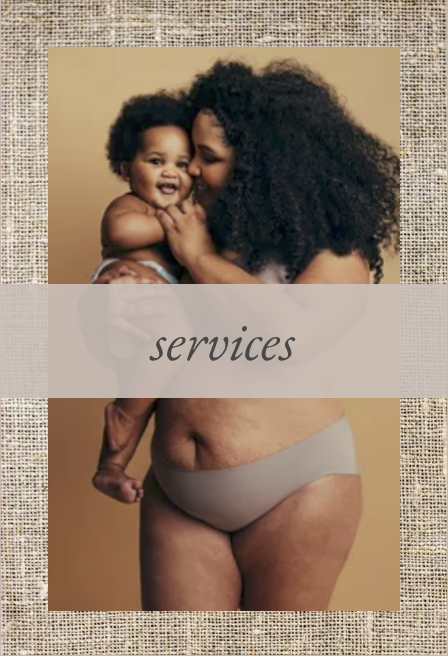Kim@BirthingDays.com | 541-733-4002
Every new parent asks “how do I get my newborn to sleep?”
It is no secret that babies, especially newborns, are not the best sleepers. The first few weeks can be really hard. There are so many books out there to read about baby’s sleep and how to prep for parenthood, but all those books can be very overwhelming. So, to simplify things I am going to give you all the goods here.
- Newborns need to eat every 2-3 hours.
A newborn actually loses weight in their first week or so of life, and it’s so important to make sure they gain it back. Babies are born with a very small stomach and they can’t hold much food. Newborns need to eat often.
This means that even if you have a baby that is a great sleeper, you will need to wake them up to feed them. I know, this seems crazy, but you will want to wake your sleeping baby. - Breastfeeding can be HARD!
Breastfeeding is something that doesn’t come naturally to most moms and babies. This is something both of you will need to learn together. If you feel like you or your baby is struggling with breastfeeding, don’t hesitate to reach out to an IBCLC. They can help you with latching and many tricks of the trade. (Read my Breastfeeding Can Be Hard blog) - Following a schedule can help them sleep.
It seems crazy to talk about putting your newborn on a schedule but trust me on this one. Having a routine will make things a lot easier for everyone. We will discuss this a little more later in this post.
Newborn Sleep Tips for the First Week (and Beyond)
- Follow the Eat, Wake, Sleep (EWS) Cycle
Eat, wake, sleep (EWS) is the mantra we follow and is the basis of Babywise.
EWS is just as it sounds — baby should follow a cycle of eating, waketime – which is essentially playtime (or in the case of a newborn, really just a diaper change) – and then sleeping. The cycle continues throughout the day.
It is very hard to keep a newborn awake for any period of time, so go easy on yourself and your baby those first few weeks. However, there’s nothing to stop you from getting into the routine and mindset of EWS from the start.
When baby wakes up, the first thing they should do is eat. The goal? To eliminate any association of needing food to fall asleep, and allow them to build the skills they need to fall asleep independently; e.g. not needing to be rocked, not needing to nurse to sleep, and not needing to sleep in your arms. - Appropriate Waketimes Are Essential
Most people think the longer they keep a baby awake before bedtime, the more tired baby will be, and the longer baby will sleep. This is actually quite the opposite.
Keeping your baby awake for the appropriate amount of time between naps and before bed (mostly determined by age, but also a little trial and error) is so so important. An overtired or under-tired baby usually will not sleep as well.
It is important to remember that wake time also includes feeding time. With newborns that are still learning to eat efficiently and possibly taking 30 or more minutes to finish eating, it is common for them to eat, get their diaper changed, and be awake for a few minutes, before falling back to sleep.
3. Make Sure Your Baby is Getting Plenty of Food
When a baby is first born one of the most important goals is getting your baby to stay awake long enough for the baby to reach its full feeding. Newborn babies find feeding time to be very soothing, so it is no surprise that they tend to fall asleep while eating. It is essential that you do your best to keep them awake long enough to eat until they are full. A full baby equals longer sleep times.
Some tips for making this happen:
- Undress your baby!
- Change their diaper before you start feeding.
- Tickle baby’s feet.
- If breastfeeding, try changing your baby’s diaper after they finish feeding on the first side. This should help wake up your baby so they are ready to feed on the other side.
4. Swaddle Your Baby
Swaddling your baby is a great way to help soothe your baby and help them sleep.
Swaddles help keep your baby snug and remind them of being in the womb. Swaddling also helps prevent your baby from being startled by its startle reflex.
I would highly recommend investing in at least 3 swaddles, this way you have backups in case of any accidents. I really like the Halo SleepSacks.
5. Use a White Noise Machine
White noise is great to have for a newborn. The white noise sound is similar to the sound they hear in the womb this will help your newborn to sleep.
Babies are used to a lot of different sounds in the womb, such as blood moving around and your heartbeat, a quiet room can be a little shocking and make it harder for your baby to have a good sleep. Using a white noise machine can help comfort and soothe your baby when they wake from a nap or at night. Using a machine can also help block out any noises in your home.
I really like the Hatch. It has a great variety of sounds and colors to choose from. This machine also can be used with older children as well.
6. Have a Bedtime Routine
I know you might be thinking it is crazy to try and implement a bedtime routine with your newborn, but it is actually really important to start following a routine while your baby is a newborn. A bedtime routine can be done however you want, but being consistent is what matters the most.
I like to do a bath, massage with lotion, pj’s, feed your baby, read them a book, dim the lights, and then sing a song or two. I then do one last final top-off of feeding about 15-30 minutes before bedtime. Try to avoid feeding your baby to sleep. We want to avoid a food/sleep dependency.
7. Use Blackout Curtains
Having a nice dark room is so essential to helping your baby sleep. The darkness will help release melatonin, so it is no surprise that a dark room is better for sleeping than a bright room.
I suggest adding good blackout curtains to your baby registry.
Sample Newborn Sleep Schedule
So now that we have gone over some of the basics to help your baby get a night of good sleep, let’s talk about a sample daily schedule for your newborn. I want to start off by sharing a few tips to make things a little easier.
Tip #1: Try to Be Consistent with the Wake Times & Naps
You’ll want to aim for 45 minutes to 1-hour max of waketime, and roughly 2-hour naps. Follow your baby’s cues and try to learn their signals that show they’re tired. Some common signs: rubbing their eyes, yawning, sucking their thumb, or crying.
If your baby wakes up early from their nap, they may have been overtired. Or if they take a long time to fall asleep, they may need a longer waketime.
When your baby gets too much sleep during the day, this can really impact nighttime sleep. I would not let your baby nap longer than 2-2.5 hours. Even though it is tempting to let your baby nap as long as they want (I know you want a break!) really try and wake them up if you need to.
Tip #2: Prep In Advance for Naps
It is important to start preparing your baby about 15 minutes prior to nap time. You will want to change your baby’s diaper, get baby swaddled, etc. It is ideal if you can get your baby into their crib/bassinet about right before they start to show signs that they are tired.
Tip #3: Put Baby Down Drowsy, But Awake
This is probably the hardest thing to do with newborns. You will have plenty of time to get your baby to learn to fall asleep without your assistance. However, it is never too early to start building those good habits.
Why is it important to put your baby down drowsy, but awake?
This will help your baby learn how to self-soothe and teach them how to put themselves to sleep. Putting your baby to bed while they are asleep, can cause your baby to become accustomed to this, and then they won’t know what to do when put in their crib or bassinet awake.
If your baby wakes up in a different environment than what they fell asleep in, it can be startling to them. So, if your baby falls asleep in your arms but then wakes up in a room all by themselves this can be very upsetting to them. If your baby is set in their crib and falls asleep while sucking on a pacifier and then wakes up, it may not be as unsettling to them. Your baby may even try and soothe themself back to sleep.
Tip #4: Go With the Flow or Be Flexible
Give you and your baby grace! This is new for everyone involved. Take one nap or bedtime at a time.
It is ok if you end up holding and rocking your baby while they sleep for the first couple of weeks. It is completely normal, they have plenty of time to learn good independent sleeping skills. Enjoy those newborn snuggles!!!
Note: After the 8 pm bedtime you will still be waking up your newborn to eat every 2-3 hours until they have at least gained back their birth weight. Talk to your pediatrician about this and any questions you have. They are the experts and will make sure you’re doing what you need to keep your baby healthy and growing.
That was a lot to cover, I know! Remember to stay flexible and give yourself grace. I promise things will get easier and your newborn will sleep better if you follow these tips and tricks.
Learn more about Newborn Sleep Support.




